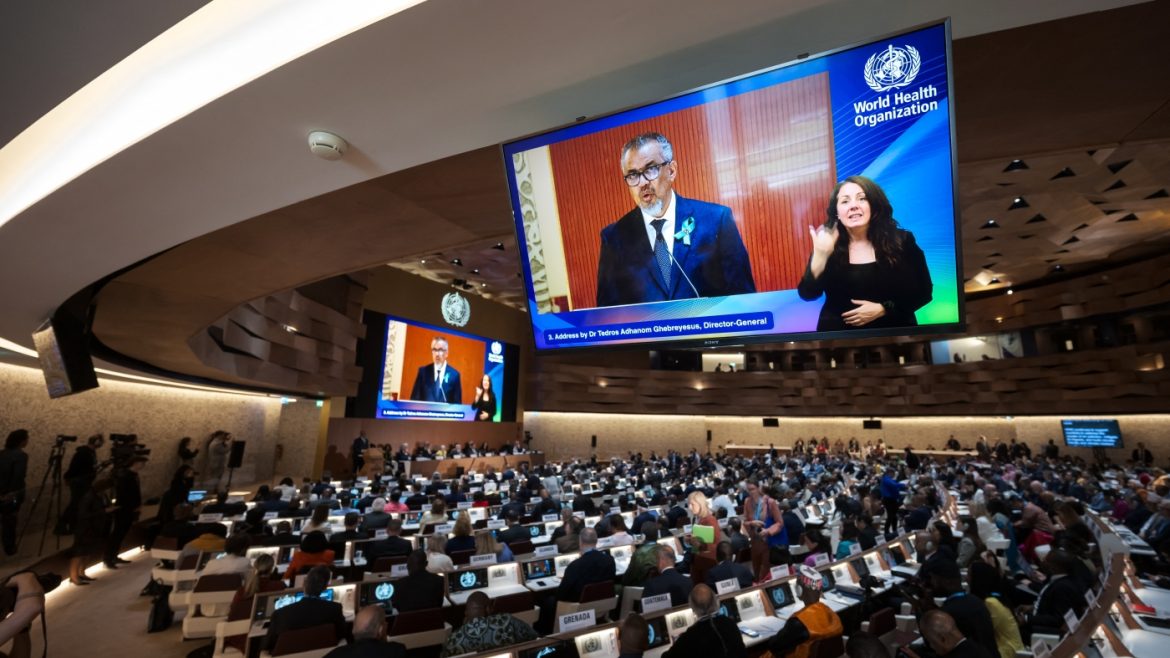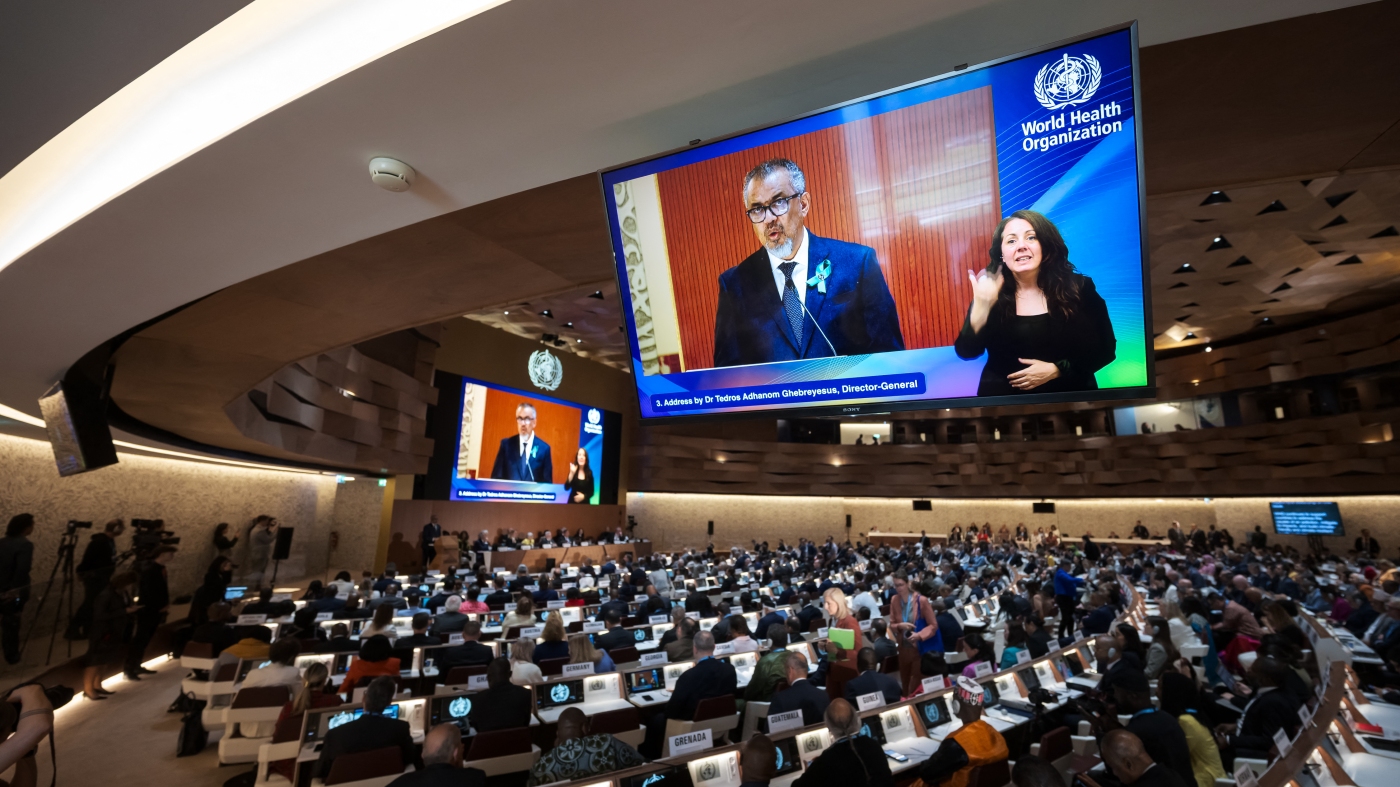The unprecedented absence of the United States from the World Health Organization’s (WHO) annual World Health Assembly (WHA) marks a pivotal moment in global public health diplomacy. Since WHO’s inception in 1948, the U.S. has been a consistent and crucial participant, both politically and financially. This report explores the causes, significance, and ramifications of the U.S. withdrawal from the WHO assembly, weaving together related facts and the evolving international context to provide a nuanced understanding.
Historical Context and U.S. Role in WHO
The U.S. has been a foundational member of the WHO since its establishment and traditionally has been its largest single donor. Contributing approximately 18-20% of WHO’s annual budget—around one-fifth of the $6.8 billion total—the U.S. has wielded significant influence over the organization’s policies and programs. This funding supports a wide range of health initiatives, from disease eradication and emergency response to technical guidance and health systems strengthening around the world.
Historically, the annual WHA serves as the forum where member states convene to set WHO’s policies, approve its budget, appoint leadership, and coordinate global health strategies. The U.S., through its delegation, has actively shaped these discussions and decisions.
The Breakaway: U.S. Withdrawal and Its Motivation
The first-time absence of the U.S. from the WHA results from President Donald Trump’s executive order initiating the withdrawal process, begun in early 2020. This move came amid a climate of mounting criticism by the Trump administration, which accused WHO of mismanagement of the COVID-19 pandemic and alleged undue influence by China. The administration suspended funding to WHO in 2020, reducing contributions significantly as part of this strategic disengagement, a unilateral action enabled by executive authority without congressional approval.
The withdrawal requires a formal one-year notice and fulfillment of outstanding financial obligations, but by 2025, the U.S. had officially ceased its membership and participation, resulting in the historic absence from the WHA.
Immediate Impact on WHO and Global Health Governance
The U.S. absence at the assembly presents an “existential crisis” for WHO in multiple dimensions:
Nonetheless, some observers speculate that the U.S. absence might galvanize remaining members to step up their commitments, driving innovation and reform without U.S. dominance. The political climate in the U.S. itself remains contentious, with debates over the pros and cons of WHO membership continuing domestically.
Broader United Nations Context
The U.S. absence from the WHO assembly coincides with a generally turbulent period in multilateral diplomacy. For example, the United Nations General Assembly (UNGA) sessions see fluctuating attendance among global powers, reflecting geopolitical tensions and divergent priorities. The WHO assembly, as a specialized agency’s decision-making body, is among the faces of multilateralism affected by changing U.S. foreign policy stances.
The UNGA remains the primary forum for policy debate among all 193 member states, but specialized bodies like WHO depend heavily on consistent support from major powers. The U.S.’s retreat from WHO thus reverberates not only in public health but also in the broader architecture of global cooperation.
Potential Consequences for U.S. and Global Health
For the U.S.:
– Diminished Influence on Global Health Policy: Exclusion from decision-making limits the U.S.’s ability to shape international health regulations and responses.
– Reduced Access to WHO Resources: U.S. public health agencies, researchers, and practitioners may face hurdles in collaborating or accessing WHO guidance and global health data.
– Reputation and Leadership Perception: The absence may tarnish the U.S.’s image as a global health leader, undermining trust among allies and partners.
For Global Health:
– Programmatic Gaps: Reduced funding and political support can disrupt vaccination campaigns, pandemic preparedness initiatives, and health systems strengthening, disproportionately affecting low- and middle-income countries.
– Coordination Challenges: A fragmented global health landscape risks inefficiencies and delays in responding to emerging health threats.
– Shifts in Geopolitical Influence: Enhanced opportunities for other countries, notably China, to fill leadership voids may alter WHO’s direction and international relations.
Prospective Outlook and Recommendations
The absence of the U.S. from the WHO annual assembly represents both a symbolic and tangible shift in the global health order. The administration’s rationale—centered on reform and reassessment of priorities—raises critical questions about how best to engage multilaterally while safeguarding national interests.
To navigate this complex future:
– WHO will need to diversify its funding sources, strengthen governance reforms, and reinforce diplomatic engagement with remaining and emerging stakeholders to maintain operational effectiveness.
– Other countries may collectively assume greater responsibility, potentially redefining leadership and fostering innovative partnerships.
– Calls within the U.S. for re-engagement or recalibration of WHO relations suggest possible shifts depending on future administrations and congressional input.
The global community stands at a crossroads: adapting to a WHO without traditional U.S. leadership or reimagining new frameworks for cooperative health security.
Conclusion: A Turning Point in Global Health Diplomacy
The U.S. absence from the World Health Assembly for the first time in over seven decades encapsulates a broader realignment in international relations and multilateral cooperation. The financial, political, and symbolic consequences challenge both WHO’s stability and the U.S.’s role in global health governance. As the WHO adapts to this new reality, the need for resilient, inclusive, and innovative international health collaboration has never been clearer. The coming years will reveal whether this rupture leads to deeper fragmentation or prompts transformative global health diplomacy that can effectively protect the world’s health.


